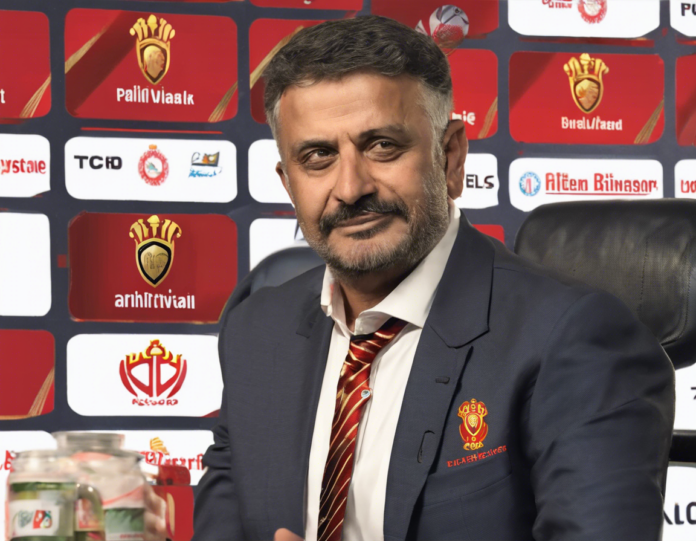The Royal Challengers Bangalore (RCB), one of the founding franchises in the Indian Premier League (IPL), has had its fair share of ups and downs in the tournament’s history. The team, owned by the parent company United Spirits Limited and previously by Vijay Mallya, has garnered a massive fan following despite never winning an IPL title. The 2023 season poses an interesting scenario for the team, especially in terms of ownership and management.
Ownership Dynamics:
The ownership scenario of RCB for the 2023 season is crucial. Currently, United Spirits Limited, a subsidiary of Diageo, holds the ownership rights of the team. However, in the dynamic world of sports franchises, ownership changes are not uncommon. Rumors and speculations regarding a change in ownership have been circulating, adding an air of uncertainty to the future of RCB. This uncertainty can impact the team’s operations, strategies, and overall morale.
If a change in ownership does occur, it could bring in a fresh perspective, financial backing, and a new direction for the franchise. On the flip side, it could also lead to destabilization, conflicting interests, and a period of transition that may affect the team’s performance on the field.
Impact on Team Management:
The ownership scenario directly impacts the team management structure. The team owner plays a pivotal role in decision-making processes related to player acquisitions, coaching staff appointments, marketing strategies, and overall team ethos. A new owner might bring in their vision and ideas, affecting the current management setup.
Support Staff and Players:
For RCB, consistent performances have been elusive despite having some of the biggest T20 stars in their lineup, including Virat Kohli, AB de Villiers, and Yuzvendra Chahal. The dynamics within the team, including player retention, auctions, and overall team composition, are closely linked to ownership decisions. Stability in ownership can provide a sense of security to the players and support staff, allowing them to focus on their performances without external distractions.
Fan Engagement and Sponsorship:
Another crucial aspect of ownership is its impact on fan engagement and sponsorship deals. RCB boasts one of the most passionate fan bases in the IPL, known for their unwavering support irrespective of results. A change in ownership could potentially impact the fan base’s sentiment, affecting ticket sales, merchandise revenue, and overall brand loyalty.
Similarly, sponsors often align their associations based on the team’s ownership, management, and performance. A stable ownership scenario provides a sense of reliability to sponsors, ensuring long-term partnerships and financial support. On the other hand, ownership uncertainties could lead to sponsors reevaluating their commitments, impacting the team’s revenue streams.
Potential Scenarios for RCB in 2023:
1. Continued Ownership: If United Spirits Limited continues to own RCB in 2023, it could signal stability and continuity for the franchise. The current management structure may remain intact, providing a sense of familiarity and operational consistency.
-
New Ownership: A change in ownership could bring in fresh perspectives, new investment opportunities, and a rejuvenated approach towards team building. However, initial transitional phases could pose challenges in terms of aligning vision, managing existing contracts, and adapting to a new ownership style.
-
Partial Ownership: In some cases, franchises opt for a consortium or multiple stakeholders sharing ownership responsibilities. This scenario could combine the strengths and resources of different entities, potentially leading to a more balanced and diversified approach towards team management.
Frequently Asked Questions (FAQs):
- Will a change in ownership affect RCB’s performance on the field?
-
A change in ownership can bring about strategic and operational changes that may impact the team’s performance initially. However, the long-term effects depend on how efficiently the new ownership adapts to the existing setup.
-
How does ownership influence player retention and auctions for RCB?
-
Ownership plays a crucial role in deciding the budget, strategies, and player preferences during auctions. A change in ownership can lead to shifts in player retention policies and auction strategies.
-
What role do sponsors play in the context of ownership for RCB?
-
Sponsors often align with the team’s ownership for brand association. Changes in ownership can influence existing sponsor partnerships and future deals, impacting the team’s financial stability.
-
How do fans react to ownership changes in RCB?
-
Fans’ reactions to ownership changes vary based on the perceived impact on the team’s performance, values, and transparency. Stable ownership is generally preferred by fans for long-term trust and engagement.
-
Can ownership uncertainties lead to player morale issues within RCB?
- Uncertainties in ownership can create a sense of instability among players, affecting morale and focus. Clear communication and transparency from the management help mitigate such issues.
As RCB navigates the ever-evolving landscape of the IPL, the ownership scenario for the 2023 season holds significance beyond just financial transactions. It shapes the team’s identity, aspirations, and long-term sustainability in a highly competitive sporting environment. Whether the franchise continues under familiar ownership or embarks on a new chapter, the impact of this decision will reverberate across the cricketing world, influencing stakeholders and fans alike.












